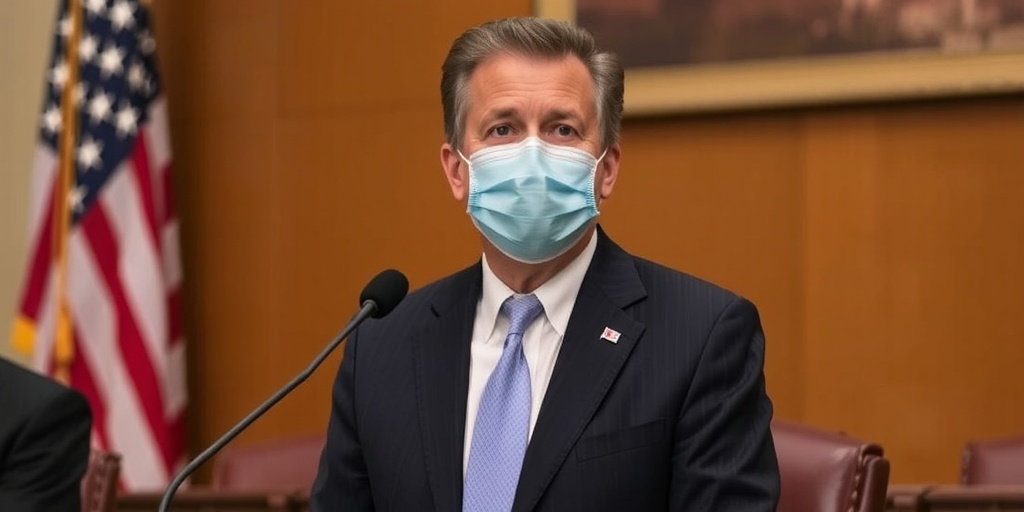Now Reading: Senate Passes Bill for Permanent Fentanyl Penalties
-
01
Senate Passes Bill for Permanent Fentanyl Penalties
Senate Passes Bill for Permanent Fentanyl Penalties
Senate Passes Bill to Make Fentanyl Controls Permanent Amid Ongoing Overdose Crisis
In a significant legislative move, the Senate on Friday passed a bill aimed at imposing strict controls and severe criminal penalties on fentanyl-related substances. The bill, which garnered bipartisan support with a 84 to 16 vote, will now return to the House for approval due to minor amendments before it can reach President Trump’s desk. This marks a notable victory for the newly G.O.P.-controlled Congress.
The legislation seeks to permanently classify fentanyl analogues—drugs that mimic fentanyl’s chemical structure but are slightly different—as Schedule I controlled substances. This classification is crucial as it aligns these substances with other highly addictive illegal drugs such as heroin and LSD, thereby enforcing stringent prison sentences for their production and distribution.
Fentanyl-related drugs have been listed as Schedule I substances since 2018; however, this classification was set to expire at the end of March. The House previously voted 312 to 108 to send the bill to the Senate, with a substantial number of Democrats—98 in total—joining nearly all Republicans in favor. Another broad bipartisan agreement is expected in the House as it reviews the revised Senate version of the measure.
Senator Charles E. Grassley, a Republican from Iowa, emphasized the dire situation law enforcement faces in his remarks on the Senate floor, stating, “No longer do drug enforcement agencies need to play this game of Whac-a-Mole every time a cartel comes up with a new fentanyl knockoff.” He asserted that this legislation would eliminate the temporary extensions that have been a feature of the federal response to the evolving crisis posed by fentanyl-related substances.
With addiction and overdose deaths from synthetic opioids, notably fentanyl, remaining a pressing concern in the U.S., this legislation highlights a collaborative approach between both political parties in recognizing the urgent need to address these public health challenges. The Centers for Disease Control and Prevention (CDC) reported around 76,000 synthetic opioid overdose deaths in 2023 alone, with fentanyl cited as a principal factor contributing to this alarming statistic. While there has been a notable decline in overall overdose deaths, experts warn that drug-related fatalities are still at concerning levels.
Republicans have leveraged the discussion around fentanyl trafficking to push their immigration policies, with Senator John Thune, the Republican majority leader from South Dakota, stating, “Getting this crisis under control requires targeting that flow of drugs. That starts, of course, with securing our southern border.” Thune underlined the necessity of the new legislation, calling fentanyl the “most deadly type of drug” and asserting that it enables law enforcement to more effectively combat its spread.
However, some Democrats remain apprehensive about the implications of the bill. Senator Richard Blumenthal from Connecticut, one of 31 Democrats who voted in favor, characterized fentanyl as a “public health menace” and acknowledged the necessity for lawmakers to take action. He expressed concern about the potential for the bill to worsen the very crisis it seeks to address.
Opposition to the measure primarily stemmed from members advocating for criminal justice reform. Critics of the bill, including Senators Elizabeth Warren and Tammy Duckworth, have historically opposed legislation that could potentially increase incarceration rates. Many Democrats and civil rights groups argue that harsh penalties disproportionately affect communities of color and could exacerbate the crisis rather than mitigate it. They advocate for a multifaceted public health response that prioritizes education, addiction treatment, and overdose prevention efforts instead of relying solely on punitive measures.
Senator Ed Markey, a Democrat from Massachusetts, condemned the bill as perpetuating “outdated war-on-drugs solutions” that fail to effectively tackle the underlying issues. He claimed that, while families call for solutions to the fentanyl crisis, this legislation merely serves as a political maneuver that sidesteps the need for genuine, impactful reforms.
Under the proposed legislation, the minimum prison sentence for trafficking just 10 grams of a fentanyl analogue would be five years, with a 100-gram threshold resulting in a minimum of 10 years. Experts suggest that the new definitions included in the bill might even lower these thresholds, as even trace amounts of fentanyl analogues would trigger severe mandatory minimums.
The legislation does provide exceptions for certain drugs already classified differently and for institutions researching the potential benefits of fentanyl analogues. However, previous concerns expressed by Democrats about the absence of provisions for the delisting of fentanyl-related drugs found to be beneficial—or for reducing the sentences of those already convicted—remain unresolved.
As discussions around this critical issue continue, it remains to be seen how the House will respond to the Senate’s changes, but both parties appear committed to addressing the fentanyl overdose crisis through this legislation.
Stay Informed With the Latest & Most Important News
Previous Post
Next Post
-
 01New technology breakthrough has everyone talking right now
01New technology breakthrough has everyone talking right now -
 02Unbelievable life hack everyone needs to try today
02Unbelievable life hack everyone needs to try today -
 03Fascinating discovery found buried deep beneath the ocean
03Fascinating discovery found buried deep beneath the ocean -
 04Man invents genius device that solves everyday problems
04Man invents genius device that solves everyday problems -
 05Shocking discovery that changes what we know forever
05Shocking discovery that changes what we know forever -
 06Internet goes wild over celebrity’s unexpected fashion choice
06Internet goes wild over celebrity’s unexpected fashion choice -
 07Rare animal sighting stuns scientists and wildlife lovers
07Rare animal sighting stuns scientists and wildlife lovers



















